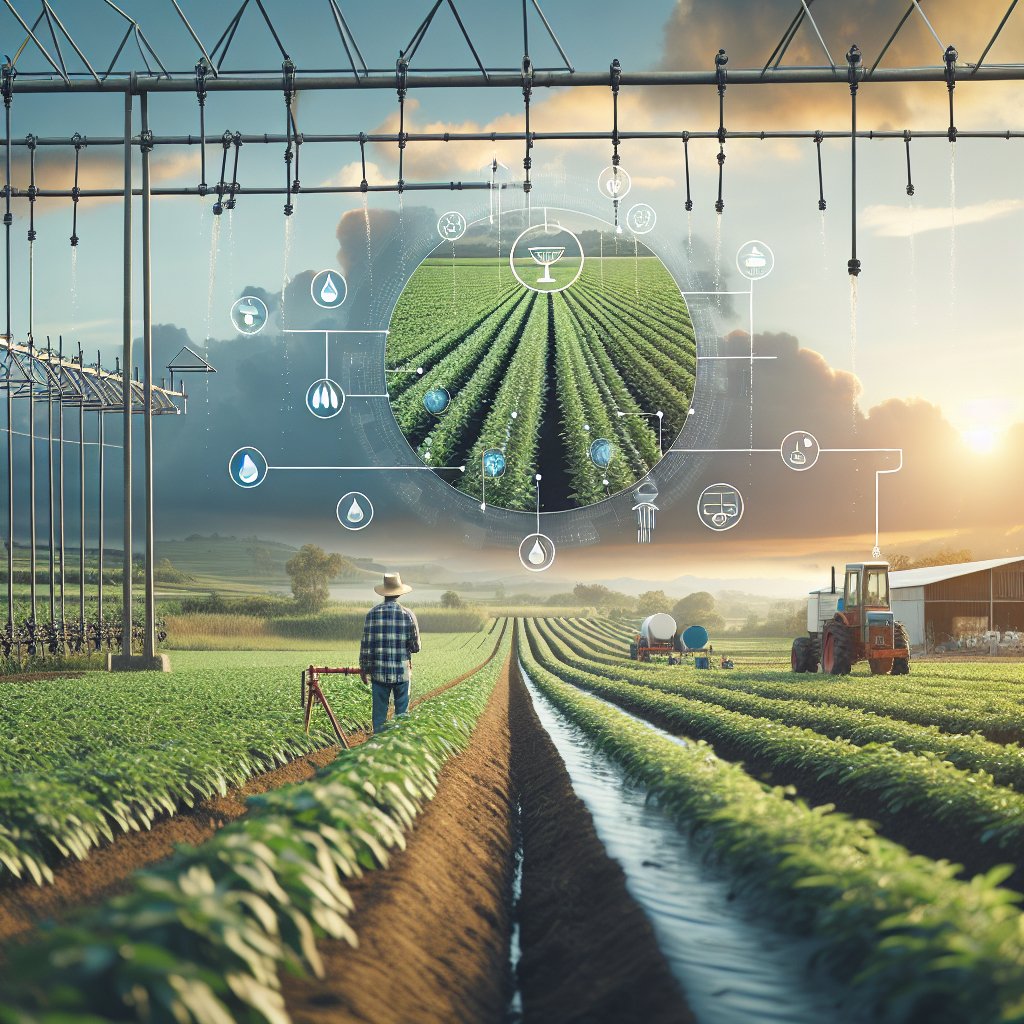The importance of water management in farming cannot be overstated, as it plays a crucial role in ensuring sustainable agricultural practices and maximizing crop yields. Effective water management strategies are essential for farmers to adapt to changing climate conditions, conserve resources, and maintain soil health. This article will explore the significance of water management in agriculture, the various techniques employed, and the challenges faced by farmers in implementing these practices.
Understanding Water Management in Agriculture
Water management in agriculture refers to the planning, development, distribution, and management of water resources for agricultural purposes. It encompasses a wide range of practices aimed at optimizing water use efficiency, reducing waste, and ensuring that crops receive the necessary moisture for growth. The importance of water management is particularly evident in regions where water scarcity is a pressing issue, as well as in areas prone to flooding.
The Role of Water in Crop Production
Water is a fundamental component of crop production, influencing various physiological processes within plants. It is essential for photosynthesis, nutrient transport, and temperature regulation. Without adequate water supply, crops can suffer from stress, leading to reduced yields and poor quality produce. Understanding the specific water requirements of different crops is vital for effective water management.
- Photosynthesis: Water is a key ingredient in the photosynthesis process, where plants convert sunlight into energy. Insufficient water can hinder this process, affecting growth and productivity.
- Nutrient Transport: Water acts as a solvent for nutrients in the soil, allowing plants to absorb essential minerals. A lack of water can lead to nutrient deficiencies, impacting crop health.
- Temperature Regulation: Water helps regulate plant temperature through transpiration. High temperatures combined with low moisture can lead to heat stress, further compromising crop yields.
Water Management Techniques
Farmers employ various techniques to manage water resources effectively. These methods can be broadly categorized into traditional practices and modern technologies.
Traditional Practices
Many farmers rely on traditional water management practices that have been passed down through generations. These methods often involve simple yet effective techniques that promote water conservation and efficient use.
- Rainwater Harvesting: Collecting and storing rainwater for agricultural use is a common practice in many regions. This technique helps reduce dependence on external water sources and ensures a steady supply during dry periods.
- Contour Farming: This method involves plowing and planting across the slope of the land, which helps reduce soil erosion and promotes water retention. It is particularly effective in hilly areas.
- Crop Rotation: Rotating crops can improve soil health and moisture retention. Different crops have varying water requirements, and rotating them can help balance water use in the soil.
Modern Technologies
Advancements in technology have led to the development of innovative water management solutions that enhance efficiency and sustainability.
- Drip Irrigation: This method delivers water directly to the plant roots through a network of tubes and emitters. Drip irrigation minimizes water waste and ensures that crops receive the precise amount of moisture needed.
- Soil Moisture Sensors: These devices monitor soil moisture levels in real-time, allowing farmers to make informed decisions about irrigation schedules. By applying water only when necessary, farmers can conserve resources and reduce costs.
- Rainfall Prediction Models: Utilizing weather forecasting and data analytics, farmers can predict rainfall patterns and adjust their water management strategies accordingly. This proactive approach helps optimize water use and mitigate risks associated with droughts or floods.
Challenges in Water Management
Despite the importance of effective water management, farmers face numerous challenges in implementing these practices. Understanding these obstacles is crucial for developing solutions that promote sustainable agriculture.
Climate Change
Climate change poses a significant threat to water availability and distribution. Altered precipitation patterns, increased evaporation rates, and extreme weather events can lead to water scarcity in some regions while causing flooding in others. Farmers must adapt their water management strategies to cope with these changes.
Infrastructure Limitations
In many areas, inadequate infrastructure for water storage and distribution hampers effective water management. Aging irrigation systems, lack of access to modern technologies, and insufficient investment in water management infrastructure can limit farmers’ ability to optimize water use.
Regulatory Challenges
Water rights and regulations can complicate water management efforts. In some regions, competition for water resources among agricultural, industrial, and residential users can lead to conflicts. Farmers must navigate these regulations while striving to implement sustainable practices.
Conclusion
Water management is a critical aspect of farming that directly impacts crop production, sustainability, and resource conservation. By employing a combination of traditional practices and modern technologies, farmers can optimize water use and adapt to the challenges posed by climate change and infrastructure limitations. As the global population continues to grow and the demand for food increases, effective water management will be essential for ensuring food security and promoting sustainable agricultural practices. Investing in water management strategies not only benefits farmers but also contributes to the overall health of the environment and society.




